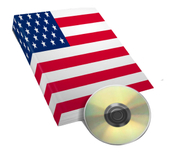 If you are an importer, you must command your supply chain. You must know what you are importing, where you are importing through (ports of entry), and the agents you use. Record keeping varies tremendously among importers. Even seasoned importers with sound compliance programs may be at a disadvantage vis-a-vis enforcement officials. US Customs and Border Protection (CBP) retains records of all your filed import activity. You may request government records through the Freedom of Information Act (FOIA). One of the first steps in setting up your import compliance program or in improving an existing one is to ask for your entry information under FOIA. The FOIA program for importers is called Importer Trade Activity or ITRAC. Your ITRAC data provides you with a wealth of information, including: Port of Lading/Unlading, Country of Origin, Exams, Entry Date, Special Programs, and Liquidation Date. CBP delivers your ITRAC data on a CD formatted on Microsoft Access. Importers should request your ITRAC at least annually. Members of the Importer Self-Assessment Program get their ITRAC data delivered automatically to them for free. Many of the improvements may go beyond customs compliance, and can benefit your company’s bottom line. For example, you may learn that your company is using too many customs brokers, that your importer identification number/tax i.d. is being used without your authorization, and that business units are importing without proper authorization. If you have questions about ITRAC, please let me know. Our lawyers can request the ITRAC data on your behalf, help you analyze trends and problems areas, and suggest and implement improvements.
3 Comments
 I received the following responses to my article, The Ultimate Bull: Country of Origin Marking. It's amazing how a tiny black stress bull can generate such an outpouring. I thank in particular two authors (who will remain anonymous) for keeping the flame of interest burning and for demonstrating that all of us, including the Government, have a little bull inside of us. Here's their comments: Dear Oscar: Re: The Ultimate Bull: Country of Origin Marking At the risk of adding to your stress, may I point out another special marking concern. From the picture, it appears that the bull's back is stamped with the marking: "USDA APHIS PPQ, Dallas, Texas." This might lead one to mistakenly believe that this is just local bull. Section 134.46 of the Marking Regulations provides that "[i]n any case in which the words 'United States,' or 'American,' the letters 'U.S.A.,' any variation of such words or letters, or the name of any city or location in the United States, or the name of any foreign country or locality other than the country or locality in which the article was manufactured or produced appear on an imported article or its container, and those words, letters or names may mislead or deceive the ultimate purchaser as to the actual country of origin of the article, there shall appear legibly and permanently in close proximity to such words, letters or name, and in at least a comparable size, the name of the country of origin preceded by 'Made in,' 'Product of,' or other words of similar meaning. CBP would likely have a beef with this imported bull. ----------------------------------------------------------- Oscar, I enjoyed your article on the PPQ tiny black stress bull, and I’ve been presented with give-aways by CBP itself at the Trade Support Network plenary sessions that were not legally marked, but in this case the transgression is much worse than you indicated. The goods do not fall into the category of NLM, but rather are deceptively marked. See 19 CFR 134.46. You also forgot in your article to indicate in which title your citation applied.  The Government has its tentacles in all imports. This statement is not a criticism (there are many valid and historical justifications for exercising this jurisdiction), but merely recognizes the concrete, cold reality that importers must live with. The other reality is that government agencies are staffed by (horrors) humans who, for the most part, do a good job, but who sometimes act in a boneheaded manner that costs importers lots of money. If someone who was not operating under government authority messed with your shipments, you could probably sue them. Winning and collecting on the lawsuit are whole different matters, but you have a right to sue them. But what if CBP or FDA seizes your shipment with little justification. Can you sue? Cue the anachronistic legal relic. The controlling doctrine has its roots in medieval English common law and is called sovereign immunity, or “the king can do no wrong.” Why our federal courts decided a long time ago to import this precept to our democracy is a tale beyond the scope of this article, but the crux is that you cannot sue the federal government without its permission. The federal government does not surrender this kind of permission easily, but it did so in 1948 when it enacted the Federal Torts Claims Act. Now you have permission to sue the US Government, but there are a slew of exceptions. For importers, the most important one is 28 USC § 2680(c) “(a)ny claim arising in respect of . . . the detention of any goods or merchandise by any officer of customs . . . or any other law-enforcement officer.” There are, of course, other things that federal agencies do to importers that go beyond detaining goods, and it may be wise to consult with the extensive case law history under the Federal Torts Claims Act and other laws, but it is safe to say that importers have not faired well when they tried to sue the federal government for improper detention of shipments. The Bureau of Industry and Security (BIS) issued on August 2nd an interim final rule about Commodity Jurisdiction (CJ) determination requests. This interim final rule is a bit of a misnomer. While it adds a couple sections to the Export Administration Regulations, it does not really create any new rule, but instead clarifies how CJ determination requests work. It is mostly a warning to exporters to stop filing classification requests and requesting advisory opinions with the BIS to circumvent the filing of a CJ determination request with the State Department’s Directorate of Defense Trade Controls (DDTC).
The BIS is visible irked that exporters file and obtain from the BIS classifications and advisory opinions without first making sure that a State Department license is needed. Why would exporters do this? Time is one consideration. The DDTC takes several months at a minimum to respond to a CJ determination request. In contrast, the BIS has a much shorter turnaround time, often less than a month. Exporters may also fear the additional legal exposure from having to obtain a State Department license and from registering as an arms exporter. Apparently, exporters obtain BIS classifications or an advisory opinion from the BIS as a shield against any enforcement proceedings from the State Department or just to avoid getting a State Department license. The BIS has announced through this interim rule that this ploy will no longer shield an exporter against criminal penalties from the State Department. However, the interim rule leaves unanswered questions. First, why is the BIS handing out classifications and advisory opinions for items it does not even have jurisdiction over? Why is the agency cutting itself slack when exporters get none? The BIS’s website warns, “If you are not completely sure of the export licensing jurisdiction of an item, you should request a CJ determination.” Shouldn’t the BIS shoulder an equal or greater burden of consulting with the State Department if it is unsure whether it has jurisdiction over an item? If some exporters are using the BIS to get around the State Department (is there even any proof of this?), why isn't the BIS revamping the way it handles classification requests and requests for advisory opinions? Second, who authorized the BIS to speak for the State Department, much less the whole federal government? The interim rule says “Advisory opinions may not be relied upon or cited as evidence that the US Government has determined that items described in the advisory opinion are not subject to the export control jurisdiction of another agency of the US Government.” An exporter gets into trouble with the State Department, not with the BIS, for failing to obtain a requisite ITAR license. Let's hear it from the State Department if it does not like when exporters use the excuse "but the BIS let me do this." Perhaps President Obama’s much anticipated overhaul of our nation’s export laws will answer some or all of these questions. In the meantime, you have until October 1, 2010 to submit a comment to the BIS regarding the interim final rule. For now, exporters must take this interim rule to heart and should accommodate the warning in the rule. If you will be filing Commodity Jurisdiction determination requests, your exports may take many months to go through all the export compliance steps. There is one other development in regards to CJ determination requests. On August 4, a final rule was issued that requires the electronic filing of CJ determination requests. There is one difference between this and the earlier notice, namely, this rule was issued by the State Department, the agency with actual jurisdiction over CJ determination requests. |
Oscar Gonzalez
Principal and a founding member of GRVR Attorneys. Archives
September 2016
Categories
All
|
- Home
- Who we are
-
Our Practice
- Customs and Import
- 301refunds
- Export
- Litigation
- Section 232 and 301 Tariffs
- Outsource Your Classification
- CBP Audits
- Fines, Penalties, Forfeitures, and Seizures
- Customs Brokers
- C-TPAT >
- Foreign-Trade Zones
- Antidumping and Countervailing Duties
- Intellectual Property RIghts
- Foreign Corrupt Practices Act
- Manifest Confidentiality
- Contracts and Incoterms
- False Claims Act and Whistleblower
- Blog
- Resources
- Calendar and Events
- Best Customs Broker Exam Course
- Contact
 RSS Feed
RSS Feed
